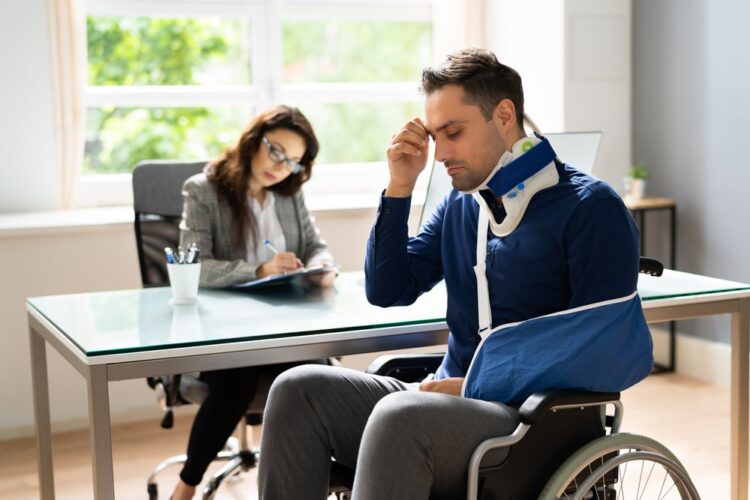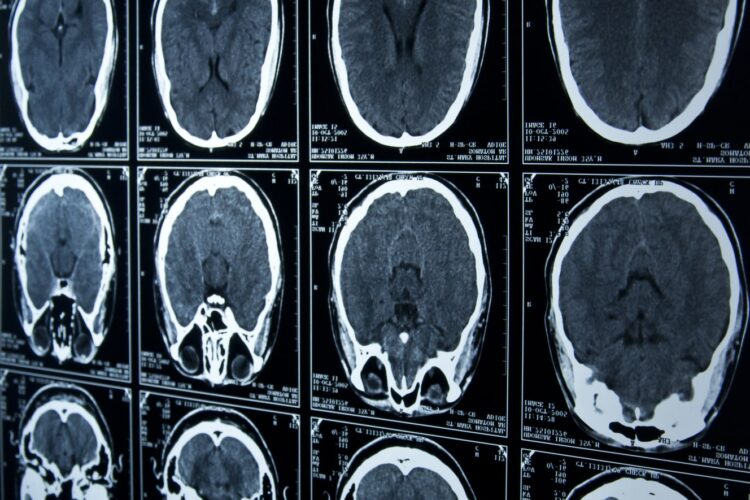April 5, 2024
Surveillance Footage For Motel Attack
In the aftermath of a harrowing experience like being attacked at a motel, seeking justice and holding the responsible parties accountable is paramount. Often, victims may feel overwhelmed and unsure of where to turn for support. However, one valuable tool that can significantly aid in the pursuit of justice is surveillance footage evidence.
The Value Of Surveillance Footage
Surveillance cameras are commonplace in motels and other establishments for security purposes. When an attack occurs, these cameras can serve as impartial witnesses, capturing crucial details of the incident that might otherwise go unnoticed or be disputed. From identifying the perpetrator to documenting the sequence of events, surveillance footage can provide invaluable evidence to support the victim’s case.
Confirming The Details Of The Attack
One of the primary benefits of surveillance footage is its ability to confirm the details of the attack. Eyewitness testimonies can be unreliable, and memories of traumatic events may be hazy or distorted. Surveillance footage, on the other hand, offers a clear and objective record of what transpired. As a lawyer, like a motel serious injury lawyer can tell you, it can confirm the identity of the attacker, the time and location of the incident, and the actions of both the victim and the perpetrator.
Establishing Liability
In cases where the motel may be held liable for the attack due to negligence or inadequate security measures, surveillance footage can be instrumental in establishing liability. By demonstrating that the motel failed to take reasonable steps to ensure guest safety, such as monitoring common areas or installing adequate lighting and security cameras, victims can strengthen their case and pursue compensation for their injuries.
Corroborating Witness Testimonies
Witness testimonies play a crucial role in corroborating the events of an attack. Surveillance footage can provide independent verification of witness accounts, lending credibility to their testimonies and strengthening the overall case. Additionally, in cases where there are discrepancies or conflicting testimonies, surveillance footage can serve as an impartial arbiter, clarifying the sequence of events and resolving any uncertainties.
Seeking Justice With Legal Support
An attorney can attest to the significance of surveillance video evidence in cases involving attacks at hotels and motels. With their expertise in personal injury law and dedication to advocating for victims’ rights, they can help victims navigate the legal process and pursue the compensation they deserve. From gathering evidence to negotiating with insurance companies or litigating in court, experienced attorneys can provide invaluable support every step of the way.
Attorneys like those at Deitch + Rogers can confirm that security video evidence can be a crucial asset in seeking justice and holding accountable those responsible for attacks at hotels and motels. By confirming the details of the attack, establishing liability, corroborating witness testimonies, and preserving evidence, video footage plays a vital role in helping victims pursue the compensation they need to rebuild their lives. With the guidance and support of skilled attorneys, victims can navigate the legal process with confidence and achieve the justice they deserve. Schedule an appointment with a lawyer you trust today.
March 29, 2024
How Calculate Pain And Suffering Damages
When faced with the aftermath of an injury, the physical scars are often accompanied by a less visible, yet equally debilitating, form of damage – the emotional and psychological toll it takes on an individual. Legal practitioners, specifically those specializing in personal injury, recognize the significance of these non-physical harms. The calculation of these damages, often referred to in a broad sense as “pain and suffering,” is a crucial component of the compensation process. Clients need to dive into the intricacies of how legal experts approach the assessment of these damages, shedding light on a process that is as complex as it is vital.
Understanding Non-Economic Damages
At the heart of the compensation process lies the distinction between economic and non-economic damages. While economic damages are relatively straightforward, involving tangible costs such as medical bills and lost wages, non-economic damages are inherently more subjective. They encompass the intangible aspects of an injury’s impact, such as emotional distress, loss of enjoyment of life, and physical pain. The task of quantifying these impacts demands a nuanced approach, blending legal expertise with a deep understanding of human suffering.
Methods Employed In Calculation
The legal field has developed several methodologies to navigate the complexities of assessing non-economic damages. Two of the most commonly used approaches are the Multiplier Method and the Per Diem Method. The Multiplier Method involves multiplying the total economic damages by a certain number, which varies based on the severity and permanency of the injuries. Conversely, the Per Diem Method assigns a daily rate to the victim’s pain and suffering, multiplying this rate by the number of days the victim is expected to endure these conditions.
Each method has its advantages and is selected based on the specifics of the case, the nature of the injuries, and the impact on the individual’s life. Legal professionals weigh these factors carefully, aiming to ensure that the compensation reflects the true extent of the victim’s pain and suffering.
The Role Of Evidence And Documentation
The foundation of any successful claim for non-economic damages is robust evidence and thorough documentation. Legal experts advise clients to maintain detailed records of their injuries, treatment, and how these have impacted their daily lives. Diaries, medical records, and testimonials from family, friends, and mental health professionals all serve as critical pieces of the puzzle. These documents provide a vivid depiction of the victim’s ordeal, lending weight to the claim and facilitating the calculation of damages.
Jury Considerations And Settlement Negotiations
When a case goes to trial, the determination of non-economic damages ultimately rests with the jury. Jurors are tasked with translating the qualitative aspects of the victim’s suffering into a monetary figure, guided by the evidence presented and the arguments made by the legal representatives. However, the majority of personal injury cases are resolved through settlements. In these negotiations, the calculation of pain and suffering damages plays a key role in reaching an agreement that both parties can accept. The skill and experience of a personal injury lawyer are paramount in these discussions, ensuring that their client’s pain and suffering are adequately compensated.
The calculation of pain and suffering damages is a process that requires a delicate balance of legal acumen, empathy, and strategic negotiation. Personal injury lawyers serve as vital advocates for their clients, navigating the complexities of the law to secure compensation that reflects the true extent of their client’s injuries. Through a combination of methodical calculation, comprehensive evidence collection, and persuasive negotiation, these legal professionals work tirelessly to bring a measure of justice to those who have suffered. In doing so, they underscore the importance of acknowledging and compensating not just the physical but also the profound emotional and psychological impacts of personal injury.
March 19, 2024
Avoiding Injuries While Engaging in Extreme Activities
 When participating in an activity with a business that might end in injury, most companies require participants to sign waivers. However, did you know that even if you sign a waiver, companies can still be held liable for your injuries if negligence was involved? More and more fun attractions are opening up across the nation that require waivers from cable wakeboarding to indoor axe throwing. While these can be extremely fun, it is important to keep safety in mind. They have provided us with some tips on how to enjoy these extreme activities while staying safe:
When participating in an activity with a business that might end in injury, most companies require participants to sign waivers. However, did you know that even if you sign a waiver, companies can still be held liable for your injuries if negligence was involved? More and more fun attractions are opening up across the nation that require waivers from cable wakeboarding to indoor axe throwing. While these can be extremely fun, it is important to keep safety in mind. They have provided us with some tips on how to enjoy these extreme activities while staying safe:
Check Equipment
Do not just take a company’s word for it that their equipment is safe. Take the time to ensure that everything looks up to par. If you have to wear a harness, double check that it does not seem worn or frayed. Additionally, if you feel you have not put the harness on correctly, ask one of the workers to check it just to be extra sure. Verify that the facilities are clean and clear of obstructions. Sometimes companies can be careless when rushing around trying to help customers, or employees can even be tired and forget to check something. It never hurts to double check it for yourself.
Follow the Rules
Companies put rules in place not just out of concern for safety, but often because someone has made the rule a necessity. For example, if you go to an indoor axe throwing business, one rule they will tell you is to not try to catch the axe if it bounces off the target. There were actually a few cases of people doing this and becoming seriously injured. The rules are there for a reason! If there is not a rule in place and something happens where you still get injured, that is when you should contact a lawyer for help.
Read the Waiver
Do not just sign safety waivers. It is best practice to look through them first. Of course some of the language in them may be hard to understand, but skimming through to make sure you understand the main point is what is important. If something is concerning, bring it up with the company and ask for clarification. If there is anything that is outright alarming, do not sign the waiver. Chances are you can find another company that does the same thing, but safer.
Be Aware
Most extreme activities such as indoor rock climbing require you to be cognizant of your surroundings. You do not want to step on someone or fall and take another person with you. Always be aware of what is happening around you. If there is a person not following the rules and behaving in a dangerous manner, alert the business immediately. They will ensure that person is made to follow the rules. If the business does nothing, for your safety it would be better to walk away. Even though you were not injured, you can still contact a lawyer about that situation as the company knowingly endangered your life and health by not enforcing important rules.
Hopefully you are able to enjoy extreme activities safely, but if an accident occurs due to the negligence of the company behind them, contact an injury lawyer near you for help immediately.
March 16, 2024
Understanding Your Steps After An Automobile Collision
Navigating the aftermath of a vehicle collision can be a complex and challenging journey. It’s a moment filled with confusion, questions, and, quite often, a rush of emotions. Knowing the proper steps to take can significantly impact the resolution of your situation, potentially saving time, resources, and ensuring your rights are fully protected. Always make sure to reach out to a skilled car accident lawyer following a collision. This guide aims to offer clarity and direction during such stressful times.
Immediate Actions Post-Collision
First and foremost, prioritize safety. If you are able to, move to a safe location away from traffic to prevent further accidents. Check yourself and others for injuries. Calling emergency services is crucial, even if the injuries seem minor. The adrenaline rush can mask pain, and some injuries may not be immediately apparent.
Documenting the scene comes next. Use your smartphone to take pictures of the vehicles, any visible injuries, and the surrounding area. These images can be invaluable evidence for insurance claims and legal purposes.
Exchange information with the other driver, including names, contact details, and insurance information. However, it’s essential to speak cautiously. Avoid admitting fault or making statements that could be used against you in future proceedings. The determination of fault should be left to the professionals after they have reviewed all evidence. This could be a very crucial part of how you can help your car accident lawyer with your case.
Seeking Medical Attention
Even if you feel fine, a medical check-up is advisable. Some injuries, like whiplash or internal bruising, don’t show immediate symptoms but can have long-term consequences. A healthcare professional can provide a thorough examination and document your condition, which is vital for any insurance or legal claims.
Navigating Insurance And Legal Waters
Notifying your insurance company about the incident is a necessary step, but tread carefully. Insurance companies often aim to minimize their payout, so it’s advisable to consult with a legal professional before accepting any settlement offers or signing documents. They can offer guidance on how to communicate with your insurer and ensure your rights are protected.
Understanding Your Legal Options
It’s here that the value of expert legal advice becomes most apparent. A skilled attorney can navigate the complexities of insurance claims and personal injury law, advocating on your behalf to secure fair compensation for damages, medical expenses, and any lost wages due to the accident.
The Importance Of Acting Promptly
Remember, time is of the essence. There are statutes of limitations that dictate how long after an accident you can initiate legal proceedings. Consulting with a legal professional early can help ensure you don’t miss critical deadlines and maximize your claim’s potential.
Your Next Steps
If you’ve recently experienced a vehicle collision, it’s normal to feel overwhelmed. However, taking the right steps can alleviate some of the stress and confusion. Ensuring your safety, documenting the incident, seeking medical attention, and consulting with a legal professional are all crucial steps in navigating the aftermath.
When you’re ready to discuss your situation, consider reaching out to a great car accident attorney near you for a consultation. An experienced attorney can provide the guidance and support you need to navigate the legal landscape, advocating for your rights and working towards the resolution you deserve. Remember, you don’t have to navigate this journey alone.
March 15, 2024
The Legal Aftermath Of A Brain Injury
The aftermath of sustaining a brain injury can be a period filled with uncertainty and stress. As individuals and their families grapple with the medical, emotional, and financial ramifications, the question of legal action often arises. Whether to settle a claim out of court or pursue litigation. Clients must dive into the nuanced considerations that guide this decision-making process, drawing on the experience of legal professionals.
Understanding The Legal Landscape
Before diving into the specifics, it’s crucial to have a grasp of the legal landscape surrounding personal injury cases, especially those involving brain injuries. These cases are particularly intricate due to the profound and sometimes latent effects of the injury on an individual’s life. It’s important to acknowledge that each case is unique, and the advice of a seasoned lawyer is invaluable in navigating the path forward.
The Case For Settling
Settling a case out of court often presents a compelling option for several reasons. Firstly, settlements can provide a quicker resolution to a potentially long-drawn legal battle. This expedited process can be a relief for those looking to avoid the emotional and financial toll of a court case. Additionally, settling guarantees a certain outcome. When the uncertainty of a trial is daunting, securing a definite compensation amount can provide peace of mind and stability for the future.
However, it’s essential to proceed with caution. Accepting a settlement without thorough consideration and professional advice can result in compensation that falls short of covering long-term needs. This is where the expertise of a lawyer becomes indispensable, ensuring that any settlement is fair and reflective of the injury’s true impact.
When Litigation Is The Right Path
While the thought of going to court can be intimidating, there are circumstances where litigation is the preferred route. This is particularly true in cases where the responsible party disputes their liability or the settlement offered does not adequately address the victim’s needs. Going to trial can potentially lead to more significant compensation, especially if the evidence strongly supports the victim’s claim.
Litigation also serves a broader purpose, holding the responsible party publicly accountable. This can be an important consideration for those who wish to ensure that the same harm does not occur to others. It’s a path that demands resilience and patience, but with the right legal support, it can be a powerful avenue for justice.
Choosing The Right Legal Partner
The decision between settling and suing hinges significantly on the legal counsel you choose. A knowledgeable and experienced brain injury lawyer will offer invaluable insights into the merits of your case and the potential outcomes of different courses of action. Look for a professional who not only has a track record of success in similar cases but also demonstrates a deep understanding of the personal impacts of brain injuries.
Your lawyer should be someone you trust implicitly, who communicates clearly and aligns with your values and goals. This partnership is crucial in navigating the complexities of your case with confidence and making informed decisions that best serve your long-term interests.
The journey following a brain injury is undeniably challenging. When it comes to the question of whether to settle or sue, there is no one-size-fits-all answer. Each decision carries its own set of implications, risks, and benefits. By seeking the counsel of a seasoned brain injury lawyer, you can navigate this complex landscape with the knowledge and support needed to make the best decision for your circumstances. Remember, your choice not only affects your legal outcome but also your path to healing and moving forward with your life.
March 3, 2024
Understanding The Role Of A Motorcycle Accident Lawyer
Motorcycles offer an unparalleled sense of freedom on the open road. However, the thrill of riding comes with significant risks. Motorcycle accidents are disproportionately more likely to result in severe injury or death compared to car accidents. The lack of physical protection, the smaller size, and the greater instability of motorcycles compared to four-wheeled vehicles contribute to this increased risk. In the unfortunate event of an accident, a motorcycle accident lawyer can be an invaluable ally for victims and their families.
Motorcycle accidents can be devastating, both physically and emotionally. Injuries can range from road rash and broken bones to more severe outcomes like traumatic brain injuries or spinal cord damage. The aftermath of such accidents often involves not only physical recovery but also navigating the complex world of insurance claims and legal proceedings. This is where the expertise of a motorcycle accident lawyer becomes crucial.
A motorcycle accident lawyer specializes in representing accident victims in legal claims against negligent drivers, insurance companies, and other parties. Their role involves several key responsibilities that are critical to securing fair compensation for their clients. First and foremost, they provide legal advice tailored to the specific circumstances of the motorcycle accident. Understanding the nuances of the law, including state-specific regulations and statutes of limitations, is essential for building a strong case.
Investigation and evidence collection are also central to the work of a motorcycle accident lawyer. This often involves gathering police reports, medical records, witness statements, and any available video or photographic evidence from the scene. The objective is to construct a compelling narrative that clearly demonstrates the other party’s negligence or wrongdoing.
Negotiation with insurance companies is another critical function of a motorcycle accident lawyer. Insurance providers are often focused on minimizing payouts, which can leave accident victims with insufficient compensation to cover medical bills, lost wages, and other damages. A skilled lawyer will advocate on behalf of their client, leveraging the evidence gathered to ensure a fair settlement is reached. If negotiations fail, the lawyer is prepared to take the case to court, presenting the evidence and arguing the case before a judge or jury.
The emotional and financial toll of a motorcycle accident can be overwhelming. Medical expenses can quickly accumulate, and the recovery process may prevent victims from returning to work, leading to lost income. A motorcycle accident lawyer understands these challenges and works diligently to secure compensation that addresses not only current losses but also future needs. This may include ongoing medical treatment, rehabilitation costs, and compensation for pain and suffering.
Choosing the right motorcycle accident lawyer is a crucial decision. Look for someone with experience in motorcycle accident cases, a track record of successful settlements or verdicts, and a clear understanding of the challenges unique to motorcycle accident claims. A good lawyer will offer compassionate support while aggressively pursuing justice on behalf of their client.
In conclusion, the aftermath of a motorcycle accident can be a daunting journey. However, with the support of a dedicated motorcycle accident lawyer victims can navigate the legal landscape with confidence. These professionals play a vital role in ensuring that justice is served and that accident victims receive the compensation they deserve, allowing them to focus on recovery and moving forward with their lives.
February 27, 2024
How A Truck Accident Lawyer Can Help
In the realm of vehicular mishaps, individuals involved in truck accidents often find themselves in need of specialized legal assistance, turning to the expertise of a professional versed in the complexities of truck accident law – the truck accident lawyer. These legal professionals play a pivotal role in navigating the intricacies of truck accident cases, offering essential guidance and support to individuals seeking reparation for damages incurred in these often severe incidents.
A truck accident lawyer shoulders the responsibility of conducting a comprehensive analysis of the circumstances surrounding the accident. This involves delving into the details of the collision, scrutinizing evidence, witness statements, and relevant documents to establish a clear understanding of the factors contributing to the incident. Through this meticulous examination, the lawyer can identify potential liability, negligence, or regulatory violations on the part of the trucking company or driver.
One key aspect of a truck accident lawyer’s role is to navigate the complex web of federal and state regulations governing the trucking industry. These regulations encompass driver qualifications, vehicle maintenance standards, and hours-of-service requirements, among others. A proficient truck accident lawyer is well-versed in these regulations, allowing them to pinpoint any violations that may have contributed to or caused the accident. This understanding is crucial in developing a strong legal strategy to hold responsible parties accountable for their actions.
A truck accident lawyer acts as a liaison between the injured party and insurance companies, leveraging their legal expertise to negotiate fair and equitable settlements. Negotiating with insurance providers demands a delicate balance of legal acumen and negotiation skills to ensure that the injured party receives adequate compensation for medical expenses, property damage, lost wages, and pain and suffering.
In cases where settlement negotiations fall short, a truck accident lawyer provides essential representation in court. They prepare and file necessary legal documents, represent the injured party during court proceedings, and present compelling arguments to support the client’s claims. The lawyer’s role is to advocate for their client’s rights and seek just compensation for the damages incurred.
Beyond the legal realm, a truck accident lawyer often collaborates with accident reconstruction experts, medical professionals, and other specialists to build a robust case. This interdisciplinary approach enhances the lawyer’s ability to present a comprehensive and compelling narrative that establishes liability and quantifies the extent of the damages suffered by the injured party.
A truck accident lawyer emerges as a crucial ally for individuals seeking legal recourse and fair compensation in the aftermath of a truck accident. Through their deep understanding of trucking regulations, meticulous investigation, negotiation skills, and courtroom advocacy, these legal professionals play a pivotal role in navigating the complexities of truck accident cases. In times of distress, the expertise and support of a truck accident lawyer can be instrumental in securing just compensation and helping individuals rebuild their lives in the wake of a potentially life-altering incident.
November 29, 2023
The Fundamental Role Played By Personal Injury Attorneys
A personal injury lawyer is a legal professional who specializes in providing legal representation to individuals who have sustained injuries or suffered harm due to the negligence or wrongful actions of others. These attorneys play a vital role in helping injured individuals seek compensation for their losses and suffering, while also holding those responsible accountable for their actions.
Personal injury cases can encompass a wide range of scenarios, including car accidents, slip and fall accidents, medical malpractice, product liability, workplace injuries, and more. When someone is injured in any of these situations, a personal injury lawyer can help navigate the legal process and ensure that their rights are protected.
One of the primary functions of a personal injury lawyer is to investigate the circumstances surrounding the injury. They will gather evidence, interview witnesses, and consult with experts to determine liability. This often involves studying medical records, accident reports, and other relevant documents to build a compelling case. Establishing liability is a crucial aspect of personal injury law, as it forms the basis for the claim.
Once liability is established, the personal injury lawyer will then work to determine the extent of the damages suffered by the injured party. This can include medical expenses, lost wages, pain and suffering, and other economic and non-economic losses. Calculating damages can be a complex process, requiring a deep understanding of the legal system and the ability to negotiate with insurance companies or opposing parties effectively.
Personal injury lawyers are skilled negotiators and are often able to reach favorable settlements without the need for a protracted court battle. They will engage in negotiations with insurance companies or the responsible parties to secure the best possible outcome for their clients. Settlements can provide a quicker resolution and avoid the stress and uncertainty of a trial.
However, if a fair settlement cannot be reached, the personal injury lawyer will take the case to court. They will prepare a compelling case, present evidence, and advocate on behalf of their client in front of a judge and jury. Litigation can be a lengthy and challenging process, but a skilled personal injury lawyer will ensure that their client’s rights are protected throughout.
Personal injury lawyers operate on a contingency fee basis, which means that they only get paid if they win the case. This fee arrangement allows injured individuals to access legal representation without the burden of upfront legal fees. It also incentivizes personal injury lawyers to work diligently to secure the best outcome for their clients.
Personal injury cases often involve complex legal principles and procedural rules, and having a knowledgeable attorney by your side can significantly increase your chances of success. These lawyers are well-versed in personal injury law, and they stay up-to-date with changes and developments in the field. This expertise is invaluable in navigating the legal system and pursuing the compensation that an injured person deserves.
November 24, 2023
The Most Common Personal Injury Cases
When it comes to personal injury cases, accidents can happen to anyone at any time. These unfortunate incidents can result in physical, emotional, and financial hardships. That’s where an experienced New Brunswick NJ personal injury lawyer comes into play, helping victims seek justice and compensation for their suffering. In this article, we’ll explore some common examples of personal injury cases to shed light on the various situations where legal representation may be necessary.
Slip And Fall Accidents
Accidents in public places due to slippery floors, uneven surfaces, or inadequate maintenance can lead to serious injuries. Personal injury lawyers often handle cases where individuals have suffered injuries as a result of negligence by property owners or managers.
Motor Vehicle Accidents
Car, motorcycle, and truck accidents are among the most common personal injury cases. These cases involve determining liability, assessing damages, and negotiating with insurance companies to ensure victims receive fair compensation for medical bills, property damage, and pain and suffering.
Medical Malpractice
Medical professionals are expected to provide a certain standard of care. When they fail to do so, resulting in injuries or worsened conditions, medical malpractice claims may arise. An experienced New Brunswick personal injury lawyer will work hard to hold healthcare providers accountable for their actions.
Product Liability
Defective products can cause harm to consumers. Personal injury lawyers handle cases involving injuries caused by defective items, such as faulty machinery, dangerous pharmaceuticals, or contaminated food products. They seek compensation from manufacturers, distributors, or sellers.
Dog Bites And Animal Attacks
Pet owners have a responsibility to control their pets and prevent them from causing harm to others. Personal injury lawyers assist victims of dog bites and animal attacks in pursuing claims against negligent owners to cover medical expenses and other damages.
Workplace Injuries
Employees who suffer injuries at work are entitled to workers’ compensation benefits. However, in cases where third-party negligence contributed to the accident, personal injury lawyers can help injured workers pursue additional compensation.
Assault And Battery
Victims of intentional harm, such as assault and battery, may file personal injury claims against the responsible parties. A New Brunswick personal injury lawyer can assist in seeking compensation for medical bills, pain and suffering, and emotional distress.
Nursing Home Abuse
Elderly individuals in nursing homes are vulnerable to abuse and neglect. Personal injury lawyers advocate for the rights of elderly residents, seeking justice and compensation when they have suffered physical, emotional, or financial harm.
Bicycle And Pedestrian Accidents
Accidents involving pedestrians and cyclists often result in severe injuries due to their lack of protection. Personal injury lawyers help victims of these accidents hold negligent drivers accountable and secure compensation for their injuries.
Contact A Lawyer
Personal injury cases encompass a wide range of situations where individuals suffer harm due to someone else’s negligence or misconduct. If you or a loved one have been injured in any of these common scenarios, it’s essential to consult with an experienced personal injury lawyer who can provide guidance and support throughout the legal process. Don’t let the aftermath of a personal injury case overwhelm you. Contact an experienced New Brunswick personal injury lawyer today to fight for your rights and the compensation you deserve. Your journey to justice begins with a simple call.
October 29, 2023
The Dos And Don’ts After A Motorcycle Accident
Motorcycle accidents can be both physically and emotionally traumatic. Ensuring proper documentation of injuries is crucial, not only for medical reasons, but also if you decide to pursue legal action. Clear, concise documentation can significantly strengthen your case, while gaps or mistakes can create complications. Attorneys can attest to the importance of thorough and accurate documentation. To guide you through this crucial process, the following outlines the dos and don’ts of documenting your motorcycle accident injuries.
Understanding The Importance Of Documentation
Accurate documentation provides a clear record of your injuries, the treatment you received, and the impact the accident had on your daily life. This record is indispensable when it comes to insurance claims or any potential lawsuits. Having clear evidence will assist in establishing the extent of your injuries, the costs associated with them, and the responsible party.
The Dos Of Documenting Injuries
- Seek Immediate Medical Attention
Always get checked by a medical professional after an accident, even if you feel fine. Some injuries may not be apparent immediately and could manifest later.
- Photograph Everything
Take clear photos of your injuries, the accident scene, your motorcycle, and any other relevant details. These visuals can be powerful evidence.
- Keep a Diary
Start a daily diary or journal detailing your physical and emotional state. Discuss pain levels, activities you can no longer do, medical appointments, and any other relevant information.
- Maintain All Medical Records
Store all medical reports, prescriptions, treatment details, and bills. They provide a chronological record of your injuries and the treatment required.
- Witness Accounts
If there were any witnesses to the accident, get their contact information. Their testimonies can be invaluable.
The Don’ts Of Documenting Injuries
- Don’t Exaggerate Or Minimize Injuries
Always be honest about the extent of your injuries. Exaggeration can undermine your credibility, while minimizing can result in inadequate compensation.
- Avoid Sharing on Social Media
Posts, photos, or comments about the accident or your injuries can be taken out of context and used against you.
- Don’t Dispose of Any Evidence
Your damaged helmet, clothing, or any other items can be crucial evidence. Store them safely.
- Avoid Giving Recorded Statements Without Consultation
Insurers might request a recorded statement. Always consult with a legal professional before providing one.
- Don’t Settle Without Proper Legal Advice
Insurance companies might offer a quick settlement. Before accepting, ensure it covers all current and future medical expenses related to the accident.
Accurately documenting your motorcycle accident injuries is pivotal in ensuring that you receive the appropriate care and compensation. Your proactive efforts in capturing all pertinent details can substantially aid any legal proceedings.
For more information about managing a motorcycle accident’s aftermath, it is best to discuss your case with a motorcycle accident lawyer. With legal assistance, you can review comprehensive documentation with them. At the same time, they can help you understand the difference it can make between a successful case and a challenging one. If you ever find yourself in such an unfortunate situation, remember these dos and don’ts and consider help from a legal professional to ensure you are making informed decisions.









